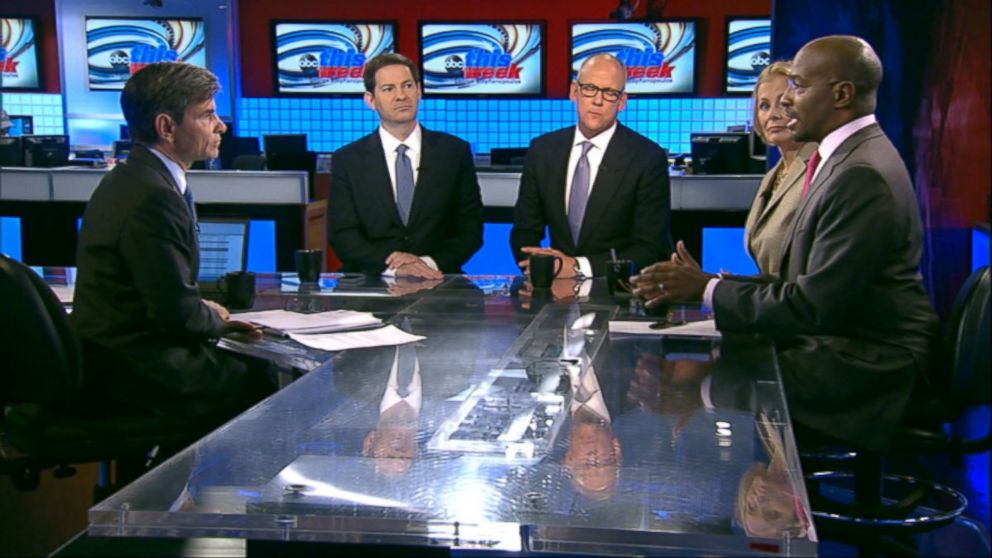‘This Week’ Transcript: Treasury Secretary Jack Lew

October 5, 2014 — -- Below is the rush transcript of "This Week" on October 5, 2014. It may contain errors.
ANNOUNCER: On ABC's This Week -- new this morning, the patient in Dallas infected with Ebola now in critical condition fighting for his life. As health officials scramble to contain the deadly disease, new concerns about how the hospital handled him. Is the U.S. really prepared for an outbreak? Out Dr. Besser is here just back from the hot zone.
Countdown to the mid-terms, just 30 days to go. What President Obama said that has Republicans pouncing.
And can Hillary Clinton's barn-storming tip the balance in key states?
Plus, honoring our wounded warriors: the new memorial opening today for all those men and women who have sacrificed so much for our country. Our Bob Woodruff is there.
From ABC News, This Week with George Stephanopoulos begins now.
GEORGE STEPHANOPOULOS, ABC NEWS ANCHOR: And we begin with all the latest on the Ebola crisis. As that patient in Dallas struggles right now, so much fear the epidemic will spread right here in America.
Look inside that plane landing in Newark airport yesterday, Homeland Security on board after officials in HAZMAT suits removed a man with flu-like symptoms. It turned out to be one of many false alarms being checked out right now by the CDC.
Director Tom Frieden here today, along with Dr. Besser, and ABC's Ryan Owens starts us off from Dallas. Good morning, Ryan,
RYAN OWENS, ABC NEWS CORRESPONDENT: George, good morning to you.
Thomas Eric Duncan has now been at this Dallas hospital for a full week. And this morning, his condition is worse than ever.
(BEGIN VIDEOTAPE)
OWENS: The hospital will only say the Liberian national is in critical condition. His family says much more.
His nephew tells ABC News, Duncan is not conscious he's so heavily sedated. He's gone into kidney failure and is on dialysis.
The Ebola victim also cannot breathe on his own and is on a ventilator.
Duncan's girlfriend and her family -- we blurred their faces to protect their privacy -- have been having their temperature monitored by CDC disease detectives twice a day. So far so good.
UNIDENTIFIED MALE: We are confident that none of those with definite contact had any symptoms related to Ebola, none of them had fever.
OWENS: The CDC says nine people in Dallas are considered at high risk for infection. Those four family members, plus a medical personnel. Approximately 40 other people who may have had contact with them are considered low risk.
The hospital here may have missed the signs and sent Duncan home after his first visit, but now everyone else seems determined not to.
UNIDENTIFIED FEMALE: We are not facing just a health crisis, we are facing a national security priority.
OWENS: The result: a lot of false alarms. Two suspected cases around Washington, D.C. have tested negative. And Saturday, CDC investigators met a flight from Brussels at Newark International after a patient from Liberia got sick on the flight. Fellow flyers thought it might be Ebola. It wasn't.
(END VIDEOTAPE)
OWENS: Ebola symptoms usually show up eight to 10 days after exposure. Remember, Duncan has been here for seven days, so you do the math. Right now is the really anxious time for folks here in Dallas -- George.
STEPHANOPOULOS: OK, Ryan. Thanks.
(BEGIN VIDEOTAPE)
STEPHANOPOULOS: Let's get more on this now from the mayor of Dallas, Mike Rawlings. Mr. Mayor, thanks for joining us.



